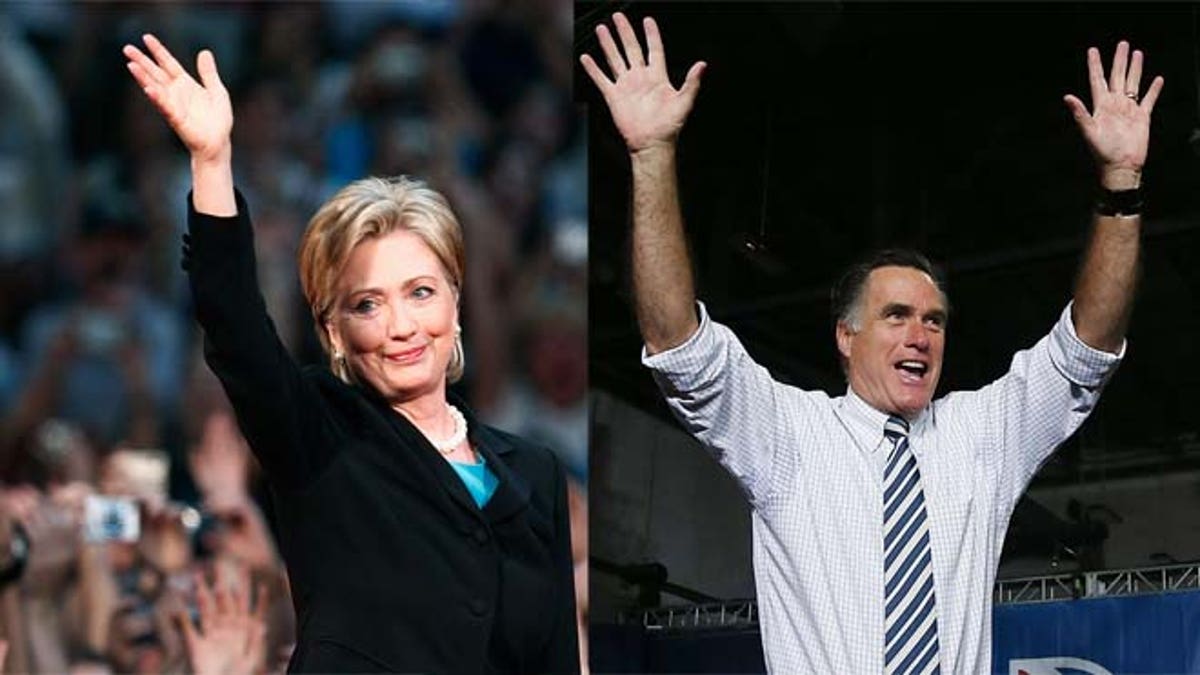
Hillary Clinton (left) and Mitt Romney. (Photos: Getty Images)
The winners of the New Hampshire presidential primaries for the last decade or so were Mitt Romney, Hillary Clinton, John McCain (who won twice), John Kerry and Al Gore.
An august group of politicians, no question, but clearly, winning New Hampshire hardly paves a path to the White House. In fact, it doesn't even guarantee being your party's nominee.
So why all the hoopla?
New Hampshire holds the first-in-the-nation primary, a week after Iowa has the first-in-the-nation caucus.
Presidential candidates generally make numerous visits to New Hampshire, almost from the time they launch their campaigns, and, consequently, media from all over the country (and many other nations) descend upon the New England state of just 1.3 million people. Then there are the numerous polls attempting to measure the sentiment of its voters.
And because it is one of the first real actions taken by voters to pick their preferred presidential candidate, the primary results, whether merited or not, are seen as a sign of things to come.
If nothing else, it persuades some candidates to stay in the race longer, and others to pack up their tents.
Witness all the endorsements that poured in for Sen. Marco Rubio after finishing a surprisingly strong third in the Iowa caucus – but before his oft-criticized performance in the last GOP debate. A poor showing in Iowa, in contrast, led former Arkansas Gov. Mike Huckabee and former Sen. Rick Santorum to drop out.
Supporters and potential donors look to New Hampshire to see if their instincts about a candidate’s viability hold true.
But according to the news site Quartz, “Few pundits expect either New Hampshire’s primary to be decisive or even winnow out many of the contenders.”
Unpredictable and known for last-minute decisions, New Hampshire voters are nevertheless looked to for help in reducing the crowded Republican field, clarifying which of the candidates could emerge as the strongest alternative to front-runners Donald Trump and Sen. Ted Cruz, a Texas firebrand who was the top vote-getter in Iowa.
Rubio’s shaky debate performance offered new hope to New Jersey Gov. Chris Christie, former Florida Gov. Jeb Bush and Ohio Gov. John Kasich – the so-called "establishment" GOP candidates – suggesting a longer slog than hoped for the GOP, one that could extend into South Carolina, Nevada and beyond.
Bush’s backers, in particular, have indicated to various media outlets that he must perform well enough in New Hampshire to persuade potential donors that he still has a shot at the Republican nomination.
The electorates that await the candidates in South Carolina and Nevada are markedly more diverse than those of Iowa and New Hampshire, so there are more tests to come for all the candidates in both parties.
New Hampshire’s population is 94 percent white, a slightly over 3 percent Latino (compared to 17 percent in the U.S. as a whole). Iowa is 92 percent white, and 5 percent Latino, according to the U.S. Census.
On the Democratic side, New Hampshire favorite Bernie Sanders and former Secretary of State Hillary Clinton — who narrowly won Iowa — are avoiding predictions about Tuesday’s primary, instead looking beyond to South Carolina and Nevada, the next two states up in the nomination process.
Sanders leads in the polling by a double-digit margin, but Clinton hopes to close the gap.
The Associated Press contributed to this report.
Like us on Facebook




